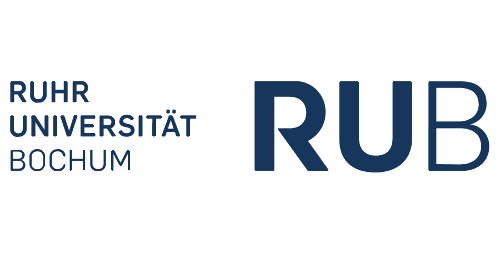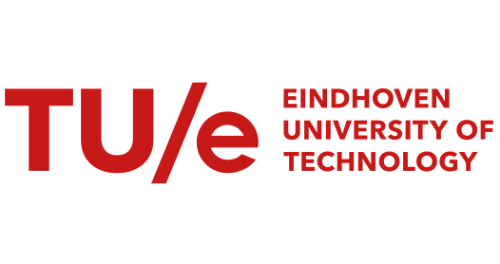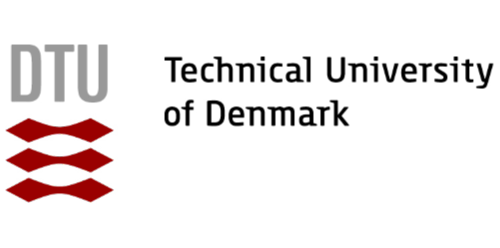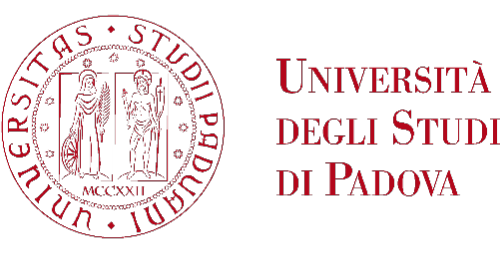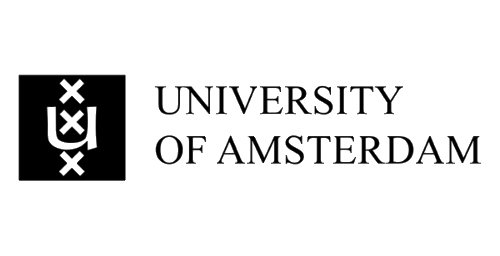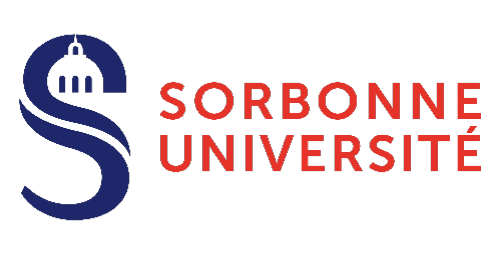
PUBLICATIONS
Journal Papers and Proceedings
- DC:1 A. Marcomini, A. Mizutani, F. Grünenfelder, M. Curty, and K. Tamaki, “Loss-tolerant quantum key distribution with detection efficiency mismatch”, Quantum Science and Technology 10, 035002 (2025). https://doi.org/10.1088/2058-9565/adc8cc
- DC1: A. Marcomini, G. Currás-Lorenzo, D. Rusca, A. Valle, K. Tamaki and M. Curty, “Characterising higher-order phase correlations in gain-switched laser sources with application to quantum key distribution”, EPJ Quantum Technol. 12, 38 (2025). https://doi.org/10.1140/epjqt/s40507-025-00340-7
- DC1: S. Juárez, A. Marcomini, M. Petrov, R. I. Woodward, T. J. Dowling, R. M. Stevenson, M. Curty, and D. Rusca, “On the Implementation Security of Twin-Field Quantum Key Distribution using Optical Injection Locking”, (2025). Preprint can be found at: arXiv:2508.21763
- DC2: Alnahawi, N., Hövelmanns, K., Hülsing, A., Ritsch, S. (2025). Towards Post-quantum Secure PAKE – A Tight Security Proof for OCAKE in the BPR Model. In: Kohlweiss, M., Di Pietro, R., Beresford, A. (eds) Cryptology and Network Security. CANS 2024. Lecture Notes in Computer Science, vol 14906. Springer, Singapore. https://doi.org/10.1007/978-981-97-8016-7_9
- DC3: E. Diamanti, A. B. Grilo, A. Innocenzi, P. Lefebvre, V. Yacoub, Á. Yángüez, “A Practical Protocol for Quantum Oblivious Transfer from One-Way Functions” (2024). Preprint can be found at arXiv:2406.09110
- DC3: A. B. Grilo, A. Yángüez, “Quantum pseudoresources imply cryptography” (2025). Preprint can be found at: arXiv: 2504.15025
- DC3: Á. Yángüez, T. A. Hahn, J. Kochanowski, “Efficient Quantum Measurements: Computational Max- and Measured Rényi Divergences and Applications”. Preprint can be found at: Arxiv:2509.21308.
- DC5: May, A., Ostuzzi, M. (2025). Multiple Group Action Dlogs With(out) Precomputation. In: Jager, T., Pan, J. (eds) Public-Key Cryptography – PKC 2025. PKC 2025. Lecture Notes in Computer Science, vol 15676. Springer, Cham. https://doi.org/10.1007/978-3-031-91826-1_12
- DC5: J. Janneck, J. Meers, M. Ostuzzi, and D. Riepel “Snake Mackerel: An Isogeny-Based AKEM Leveraging Randomness Reuse”, 2025. Preprint can be found at: https://eprint.iacr.org/2025/1474.pdf
- DC5: A. May, M. Ostuzzi, H. Ressler: “Just Guess: Improved (Quantum) Algorithm for the Underdetermined MQ problem”. Preprint can be found at https://eprint.iacr.org/2025/1788
- DC6: M. Pittaluga, Y. San Lo, A. Brzosko, R. I. Woodward, M. S. Winnel, T. Roger, J. F. Dynes, K. A. Owen, S. Juárez, P. Rydlichowski, D. Vicinanza, G. Roberts, A. J. Shields, “Coherent Quantum Communications Across National Scale Telecommunication Infrastructure.” (2024). Preprint can be found at: arXiv:2405.11990
- DC6: S. Juárez, A. Marcomini, M. Petrov, R. I. Woodward, T. J. Dowling, R. M. Stevenson, M. Curty, and D. Rusca, “On the Implementation Security of Twin-Field Quantum Key Distribution using Optical Injection Locking”, (2025). Preprint can be found at: arXiv:2508.21763
- DC8: M. R. Bolaños, E. Rossi, F. Berra, A. De Toni, I. K.-Amarantidou, D. C. Lawo, C. Agnesi, M. Avesani, A. Stanco, F. Vedovato, P. Villoresi, G. Vallone; “GHz-rate polarization-based QKD system for fiber and satellite applications”. Preprint can be found at arXiv.org/abs/2602.08908.
- DC8: F. Berra, Matías R. Bolaños, A. De Toni, K. Vijayadharan, C. Agnesi, M. Avesani, A. Stanco, P. Villoresi, G. Vallone: “General model and modulation strategies for Sagnac-based encoders”.
- DC8: B. Lopes da Costa, M. R. Bolaños, R. Chaves, C. Narduzzi, M. Avesani, D. Giacomo Marangon, A. Stanco, G. Vallone, P. Villoresi, Y. Omar, “Power-consumption Backdoor in Quantum Key Distribution”. Published in Physical Review Applied: https://doi.org/10.1103/f92x-c3zj
- DC8: K. Vijayadharan, M. R. Bolaños, M. Avesani, G. Vallone, P. Villoresi, C. Agnesi, “A Sagnac-based arbitrary time-bin state encoder for quantum communication applications” (2025). Preprint can be found at: https://arxiv.org/abs/2506.08971
- DC8: M. R. Bolaños et al. “A time-to-digital converter with steady calibration through single-photon detection”. Published in IEEE Transactions on Instrumentation and Measurements: DOI: 10.1109/TIM.2025.3601244
- DC9: J. Rey-Domínguez, A. Navarrete, P. van Loock, and M. Curty: “Hacking coherent-one-way quantum key distribution with present-day technology”, (2024). Quantum Sci. Technol. 9 035044: DOI: 10.1088/2058-9565/ad4f0c
- DC9: J. Rey-Domínguez and M. Razavi, “Rethinking Quantum Repeaters: Balancing Scalability, Feasibility, and Interoperability” (2025). Pre-print can be found at: https://arxiv.org/abs/2508.16310
- DC11: V. Mannalath, A. Pathak: “Multiparty entanglement routing in quantum networks”, Phys. Rev. A 108, 062614 (2023). DOI: https://doi.org/10.1103/PhysRevA.108.062614
- DC11: V. Mannalath, V. Zapatero, M. Curty, “Sharp Finite Statistics for Quantum Key Distribution”, Physical Review Letters 135, 020803 (2025). https://doi.org/10.1103/l735-x48g
- DC11: V. Mannalath, V. Zapatero, M. Curty, “Elementary Tail Bounds on the Hypergeometric Distribution”, submitted to Statistics and Probability Letters (2025).. Pre-print can be found at: https://arxiv.org/abs/2510.19726
- DC12: Majenz, C., Sisinni, F. (2024). Provable Security Against Decryption Failure Attacks from LWE. In: Reyzin, L., Stebila, D. (eds) Advances in Cryptology – CRYPTO 2024. CRYPTO 2024. Lecture Notes in Computer Science, vol 14921. Springer, Cham. https://doi.org/10.1007/978-3-031-68379-4_14
- DC12: K. Hövelmanns, A. Hülsing, C. Majenz, and F. Sisinni. (Un)-breakable curses – re-encryption step in the Fujisaki-Okamoto transform. Cryptology ePrint Archive, Report 2025/299. https://eprint.iacr.org/2025/299
- A. B. Grilo, L. Hanouz, A. Marin “Security of a secret sharing protocol on the Qline” (2025). Preprint can be found at arXiv:2504.19702v1
Conferences
- DC1: A. Marcomini, G. Currás-Lorenzo, D. Rusca, M. Curty, “Characterising higher-order phase correlations in gain-switched laser sources with application to decoy-state QKD”, “Primera Reunión Nacional del Plan Complementario de Comunicacione Cuánticas”, Universidad Politécnica de Madrid (Spain), September 19-21, 2023.
- DC1: A. Marcomini, G. Currás-Lorenzo, D. Rusca, M. Curty, “Characterising higher-order phase correlations in gain-switched laser sources with application to decoy-state QKD”, 13th international conference on quantum cryptography (QCRYPT2023), University of Maryland, USA, 14–18 August 2023.
- DC1: A. Marcomini, Fadri Grünenfelder, G. Currás-Lorenzo, A. Valle, K. Tamaki, H. Zbinden, M. Curty, D. Rusca, “Experimental characterisation of second-order phase correlations in gain-switched laser sources for decoy-state QKD”, 14th international conference on quantum cryptography (QCRYPT2024), Vigo, Spain, 2-6 September 2024.
- DC1: A. Marcomini, A. Mizutani, F. Grünenfelder, M. Curty, K. Tamaki, “Security of loss-tolerant QKD with source and receiver imperfections”, 15th international conference on quantum cryptography (QCRYPT2025), Sanya, Hainan, China, 25-29 August 2025.
- DC3: A. Innocenzi, V. Yacoub, Á. Yángüez, P. Lefebvre, A. B. Grilo, E. Diamanti, “Experimental implementation of Simulation secure Quantum Oblivious Transfer”, 1st Colloquium GdR TeQ “Quantum Technologies”, University of Montpellier, France, 22-24 November 2023.
- DC3: A. Innocenzi, V. Yacoub, Á. Yángüez, P. Lefebvre, A. B. Grilo,E. Diamanti, “Experimental implementation of Simulation secure Quantum Oblivious Transfer”, 14th international conference on quantum cryptography (QCRYPT2024), Vigo, Spain, 2-6 September 2024.
- DC3: E. Diamanti, A. B. Grilo, A. Innocenzi, P. Lefebvre, V. Yacoub, Á. Yángüez “A Practical Protocol for Quantum Oblivious Transfer from One-Way Functions”, 14th international conference on quantum cryptography (QCRYPT2024), Vigo, Spain, 2-6 September 2024.
- DC3: E. Diamanti, A. B. Grilo, A. Innocenzi, P. Lefebvre, V. Yacoub, Á. Yángüez “A Practical Protocol for Quantum Oblivious Transfer from One-Way Functions”, YQIS Conference, Paris, France, 4-8 November 2024.
- DC3: A. Innocenzi, V. Yacoub, Á. Yángüez, P. Lefebvre, A. B. Grilo, E.Diamanti, “Experimental implementation of quantum oblivious transfer from one-way functions”, 2nd Colloquium GdR TeQ “Quantum Technologies”, Sorbonne Université, France, 13-15 November 2024.
- DC8: M. Bolaños et al., “Encoding arbitrary d-dimensional time-bin states”, XIII Quantum Foundations, Cordoba, Argentina, 25-27 November 2024.
- DC8: B. Lopes da Costa, M. R. Bolaños Wagner, R. Chaves, C. Narduzzi, M. Avesani, D. G. Marangon, A. Stanco, G. Vallone, P. Villoresi and Y. Omar, “Quantum Backdoor – Performing Electronic Side-Channel Analysis on QKD System”, QCrypt 2024, Vigo, Spain, 2-6 September 2024.
- DC8: M. Bolaños, et al. “An auto-calibrated time-to-digital converter for Quantum Communication”, QCrypt 2024, Vigo, Spain, 2-6 September 2024.
- DC8: M. Bolaños, et al. “FPGA-based time-to-digital converter for Quantum Key Distribution with Continuous Calibration”, Optica Quantum 2.0 Conference and Exhibition, Rotterdam, Netherlands, 23-27 June 2024.
- DC8: Berra F., Agnesi C., Karakosta-Amarantidou I., Avesani M., Bolaños M., De Toni A., Stanco A., Picciariello F., Vedovato F., Laurenti N., Villoresi P., Vallone G., “High speed source for satellite quantum key distribution”. IAC2023, Baku, Azerbaijan, 1-7 October 2023.
- DC8: F. Berra, M. Bolaños, C. Agnesi, M. Avesani, A. Stanco, G. Vallone, P. Villoresi, “Quantum Key Distribution at 1 GHz and time-tagging system development”, 108a Reunión Anual de la Asociación de Física Argentina, 19-22 September, 2023.
- DC9: Javier Rey-Domínguez, Ahmed Lawey and Mohsen Razavi, “Quantum key distribution over connectionless quantum repeater networks”, talk in White Rose QIST workshop 2024, York, United Kingdom, 11-12 July 2024.
- DC9: Javier Rey-Domínguez, Ahmed Lawey and Mohsen Razavi, “Quantum key distribution over connectionless quantum repeater networks”, poster in QCrypt 2024, Vigo, Spain, 2-6 September 2024.
- DC9: J. Rey-Domínguez and Mohsen Razavi, “Quantum key distribution over an encoded repeater chain with sequential swapping”, International Conference on Quantum Communications, Networking, and Computing (QCNC2025) at Nara, Japan, March 31st – April 2nd, 2025.
- DC9: J. Rey-Domínguez and M. Razavi, “Hop-by-hop long-distance quantum key distribution with error detection”, poster in QCrypt 2025, Sanya, China, 25-29 August 2025.
- DC11: V. Mannalath, “Multiparty Entanglement Routing in Quantum Networks”, Quantum Technologies for Young Researchers Workshop held at Instituto de Química Física Blas Cabrera (IQF-CSIC) in Madrid from 4-7 2023.
- DC11: V. Mannalath, V. Zapatero, M. Curty, “Quantum key distribution with small data block sizes”, 14th international conference on quantum cryptography (QCRYPT2024), Vigo, Spain, 2-6 September 2024.
- DC11: V. Mannalath, V. Zapatero, M. Curty, “Sharp finite statistics for quantum key distribution”, 15th international conference on quantum cryptography (QCRYPT 2025), Sanya, Hainan, China, 25-29 August 2025..
OUR PARTNERS
QSI includes a set of strategically chosen beneficiary and associated partners with complementary expertises in the field of Quantum-Safe cryptography. The former host and supervise the Doctoral Candidates, while the latter add value to the programme by offering secondments and contributing to the training events and dissemination activities.

